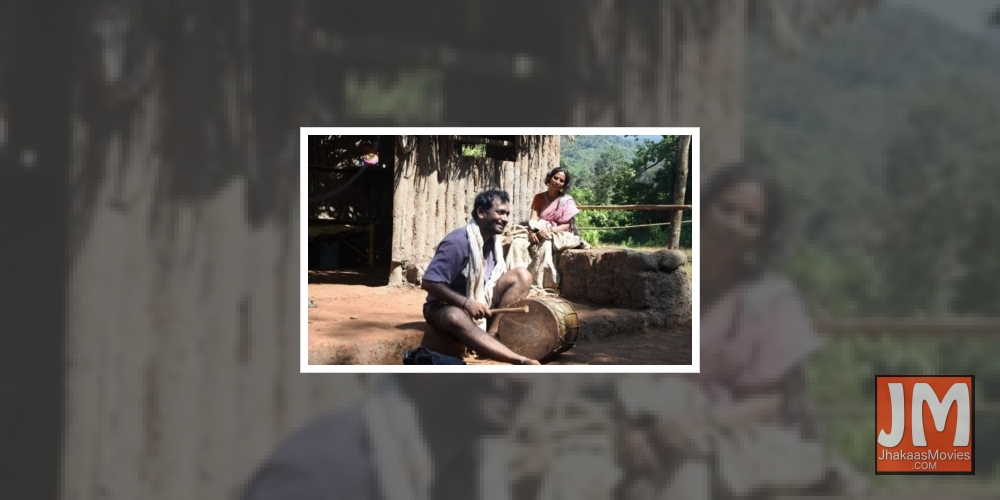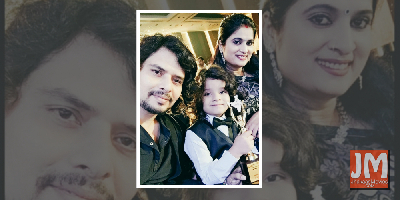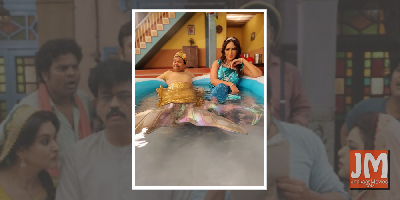 Aan Tiwari honoured with Best Child Actor award for Baal Shiv
Aan Tiwari honoured with Best Child Actor award for Baal Shiv Ghategi rahasymayi ghatnaye!
Ghategi rahasymayi ghatnaye! Amazon Prime Video unveils the 2021 Festive Line-up; brings a heady mix of Indian and International titles on the service
Amazon Prime Video unveils the 2021 Festive Line-up; brings a heady mix of Indian and International titles on the service Release: Music video of, Yeh Haalaath, from Mumbai Diaries 26-11
Release: Music video of, Yeh Haalaath, from Mumbai Diaries 26-11 Bhumi Pednekar feels she shares feel-good value with Akshay Kumar on screen
Bhumi Pednekar feels she shares feel-good value with Akshay Kumar on screen
National award winning film 'Kaajro' shines a light on the flip side of Goa

Digging beneath the glossy veneer of Goa, depicted through tourism brochures and social media influencer posts, 'Kaajro', the National Award winning Konkani film, highlights the less discussed issue of caste discrimination in the coastal state often billed as a coastal paradise.
According to Dr. Prakash S. Parienkar, a Konkani writer, whose story the award winning film is based on, caste discrimination is very much a reality in Goa, but added that the film is a universal commentary on discrimination on the basis of caste and class.
'Kaajro' is a story of Tilgya, who is born to an untouchable caste. While his village is celebrating the annual festival of Dassehra, marking the triumph of Lord Rama over Ravana i.e. good over bad, Tilgya's ailing wife, Gokula, dies.
But Tilgya is not allowed to perform his traditional role of playing a dholuk (a local drum) during the ritual and procession, and he is forced to leave the village with his wife's dead body and burn the corpse under the shade of a tree called 'Kaajro', also called a 'Bitter Tree'.
While Goa rests in the upper echelons of social indices ranking vis-a-vis health, education, etc, among Indian states, the coastal state's hinterland often throws up ugly instances of caste discrimination, whether it is cremation of Dalits in villages or access to water bodies or public wells to members of the Scheduled Caste communities.
In 2002, a Hindu priest was also driven out of Khazane village in North Goa, by members of a temple committee at Khazane village, for officiating the wedding of a Dalit couple.
"I was born and brought up in the rural area of Sattari, in Goa. I have seen and observed so many such incidents right from my childhood. I have also faced minor instances of discrimination when I was studying in school," Parienkar, an associate professor of Konkani at the Goa University states.
"One such incident occurred in Pernem sub district 12 years back. It was a big issue in the state of Goa then," he said.
The film, Parienkar however says, was aimed at making a broader statement on the issue of social discrimination and not just limited to the geographical confines of Goa.
"The issue of caste discrimination is not only prevalent in Goa, you will find it across the country in different forms. It occurs all over the world. We even have class discrimination in advanced countries like USA, Africa and Europe," Parienkar said.
"You will find this type of discrimination at all levels of life. We cannot pinpoint one particular community or class. There are social, religious, economical and political inequalities among us too," he also said.








